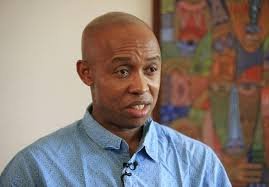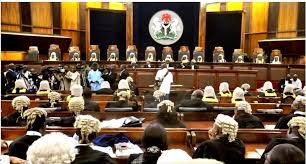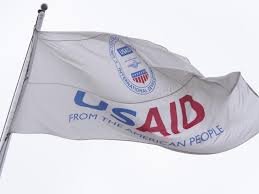By Comrade Dr. Ibrahim M. ZIkirullahi
Resource Centre for Human Rights & Civic Education (CHRICED) has closely monitored the public debate created by the Central Bank of Nigeria’s (CBN) regulation on cash withdrawal limits for individuals and corporations. Given the predicted impacts of the policy on the economy, lives and livelihoods of Nigerians, it is evident that the CBN has once again acted in a hasty and ill-conceived manner.
In a country where the vast majority of people struggle to earn a living in the informal sector, the policy to restrict cash withdrawals amounts to an attempt to impoverish even more citizens. Also, majority of poor and unbanked Nigerians would be struck even harder, as smartphones are the only common means to engage in digital transactions, such as cashless payments. Those who cannot afford smartphones will be left behind.
The implication of the CBN’s cruel policy is that electronic payments are not as secure as they would have the gullible believe, at least not in Nigeria. Without the proper infrastructure, a cashless system exposes citizens to hackers and robbers of the electronic world, who can drain one’s account with no other way to spend money. Glitches, outages, and innocent mistakes can all cause problems and leave one bankrupt.
In light of the latest National Bureau of Statistics (NBS) report indicating that 133 million Nigerians live in multidimensional poverty, well-intentioned government institutions should examine policy choices that will stimulate the economy and put money in the hands of citizens. Indeed, in a country where millions of citizens are still reeling from the devastating economic realities imposed by the COVID pandemic in terms of livelihoods and jobs, it defies belief that a government, unable to provide any form of economic stimulus, would even consider an idea that would result in more people losing their jobs. It is disheartening that the CBN does not care about the millions of people whose livelihoods will be destroyed as a result of the apex bank’s rash and harebrained experimentation. It is strange and completely repugnant that a government that implemented policies that pushed millions of Nigerians into the trap of poverty, would be hell bent on pushing through harsher policy options, when it should be thinking of how to give succor to the long suffering people of this country.
A cashless society runs on digital technology. More than half of Nigeria’s population is still without electricity. Even major cities and capitals are daily experiencing epileptic power supply, and due to fuel scarcity and other attendant issues, the cost of running a generator is extremely high. Therefore, while CHRICED is not opposed to a cashless transaction system in Nigeria, we are convinced that this can only happen if Nigeria gradually develops the infrastructure needed to support such a system. A country with mass illiteracy, and millions of unbanked citizens, which continues to face infrastructure challenges such as erratic power supply and low internet penetration, cannot simply wake up one morning and force everyone to adopt a cashless system that lacks the necessary infrastructure. In many far-flung rural communities, which are cut off from all the trappings of modernity, a policy like this would be the source of untold suffering and starvation. In many of such communities, this policy will be a matter of life and death. The limit being placed on cash withdrawal could be the determining factor in whether someone in a critical medical emergency situation lives or die. In a country, where even medical facility would not admit or treat a patient until “cash deposit” is made, there can be no mistaken the fact that the CBN has not done a proper situational analysis before trying to push the country and its economy down this path.
CHRICED believes that this policy demonstrates that the Godwin Emefiele-led CBN has never had the best interests of ordinary citizens in mind since his appointment as Governor of the CBN; in fact, this policy calls to question his qualifications as a banker and economist. To all intents and purposes, Emefiele is more is more concerned about putting more monies in the coffers of the banks. The import of this withdrawal limit policy is that the banks, who are already neck-deep in the despicable business of fleecing Nigerians of their hard earned monies, will now have the free space to continue with their pilfering of monies kept in their custody through arbitrary charges and deductions. This implies that while Nigerians will be groaning under the burden inflicted by this policy, the banks will be feasting on the sweat of the people. This kind of despicable monetary policy is not acceptable to the Nigerian people, and therefore stand rejected.
The result of this discredited policy is a flagrant violation of the explicit provisions of Section 16(1) of the 1999 Constitution (as amended), which stipulates that the State shall, within the context of the ideals and objectives for which provisions are made in this Constitution, (a) harness the nation’s resources and promote national prosperity in an efficient, dynamic, and self-reliant economy for every citizen on the basis of social justice and equality of status and opportunity; (b) control the national economy in such manner as to secure the maximum welfare, freedom and happiness of every citizen on the basis of social justice and equality of status and opportunity. In Section 16 (2b) the Constitution mandates that the economy is not operated in such a manner as to permit the concentration of wealth or the means of production and exchange in the hands of a few individuals or of a group. CHRICED makes no mistake about the fact that this current policy of the CBN is a complete breach of the provision of the nation’s constitution, and an attempt to rob ordinary Nigerians, and put their proceeds in the vaults of banks, which contribute virtually nothing in terms of supporting the real sector of the economy.
CHRICED is also not swayed by the argument that the discredited policy of further limiting cash withdrawals would prevent vote buying during the 2023 general elections. Was the CBN asleep when politicians blatantly violated its financial policy by buying their way in the delegate primary elections? Nonetheless, if this is the purpose, then the focus of the policy should be on those who make suspicious withdrawals of large sums of cash during the elections. Ordinary Nigerians who are struggling to feed their families and get on with their lives should not be the target of such a policy. If the CBN is truly interested in tracking unscrupulous elements, that want to use hefty sums of cash to compromise the integrity of elections or for other criminal activity, it knows what to do.
CHRICED commends Nigerians who have so far used all peaceful and lawful channels to resist this draconian policy. CHRICED calls on the National Assembly to apply maximum pressure to force a reversal of this discredited policy. If the CBN Governor insists on inflicting more suffering on Nigerians, processes should be put in place to immediately remove him from the very sensitive position of CBN Governor.
























